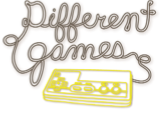Games as Art, Activism and Representions of the Real
This panel brings together three projects that use games as a means of real world political commentary and social critique. Whether in the context of the global contemporary art market, the political history of Czechoslovakia, or artist-staged anti-war interventions in online multiplayer games, our speakers will examine at the way games act as catalysts and ciphers for discourses of social critique.
Grayson Earle:
“My work in video games has been an attempt to harness the potential rhetorical power in order to formulate cultural critiques. By staging the player as an agent of subversive activity in the game, they are invited to consider a more radical stance IRL. Games can also be a tactical tool when the wall is broken and players are invited to impact systems directly.”
Kimberley McLeod:
“This paper investigates two performance interventions into video games: Eva and Franco Mattes’ Freedom (2010) and Joseph DeLappe’s dead-in-iraq (2006-2011). Both projects raise a number of questions about what activism can look like in gaming spaces. At the same time, situating these interventions as works of art risks limiting their potential as activist actions.”
Shawn Clybor:
“This paper considers how Czech historical memory is being presented through the series of serious games Czechoslovakia 38-89. Based on oral history accounts and academic research through Charles University and the Institute for Contemporary History in Prague, Czechoslovakia 38-89 games offer a nuanced picture of contemporary Czech history, from the Nazi Protectorate during World War II through the rise of communism and Stalinist terror in the 1950s. The goal of this paper is to understand how academics and researchers are utilizing the affordances of new digital media to teach students about complex historical events. Particular emphasis will be placed on how the game conceptualizes and in many respects problematizes Czech historical memory.”
